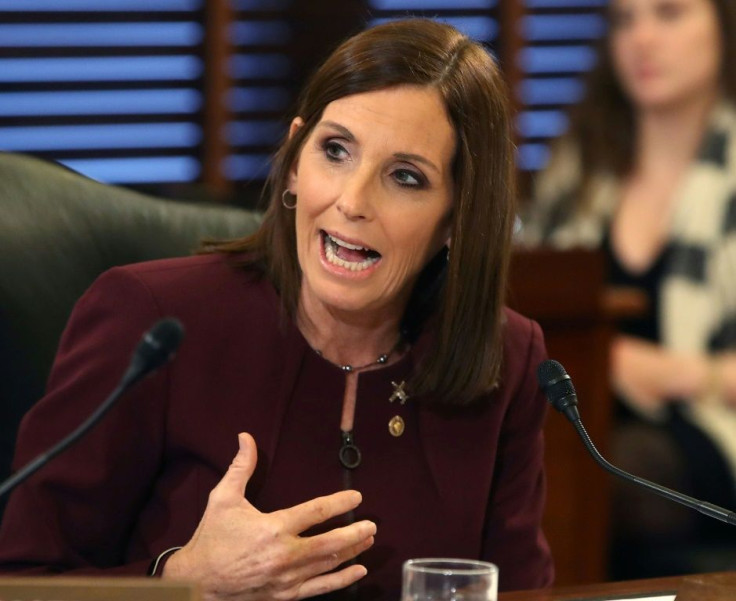Republicans Facing Challenging Senate Election Fights As Democrats Raise More Money

KEY POINTS
- Incumbancy is supposed to help
- Dem bankers picked Cal Cunnningham before the primary election
- Sen. Susan Collins has never had an easy reelection
Four U.S. Senate seats are labeled toss-ups by the Cook Political Report. If Democrats claim each, the party would gain control of both chambers of Congress. If Trump loses the White House the country could see a revolutionary change in economic and social policy. If one follows the political money, it is rolling to Democratic candidates.
Democratic challengers outraised incumbent GOP senators in the first quarter of this year. These contests underscore just how costly the battle for the Senate will be: Super PACs in both parties have already reserved nearly $130 million for TV ads in these states, according to Politico.
The races Cook focused on are in Arizona, Colorado, Maine and North Carolina.
Sen. Martha McSally, R-Ariz., was appointed to fill the seat of Jon Kyl in 2018. The position is up for reelection this year. She will likely face Mark Kelley, the husband of former Rep. Gabby Giffords, D-Ariz., in the general. The Arizona primary is not until Aug. 4, the candidates will not become official until then.
Kelly is the best-funded candidate in the country, sitting on $19.7 million, nearly double the cash of McSally, according to Politico.
The state leans Republican, but Sen. Krysten Sinema, D-Ariz., beat McSally in a special election for John McCain's former seat in 2018. Rep. Ann Kirkpatrick, D-Ariz., won the congressional seat formerly held by McSally in 2018. Trump edged Hilary Clinton in the 2016 election in the state.
Sen. Cory Gardner, R-Colo., who won his seat by .9% in 2014, won't know who his opponent is until after the June 3 primary. He knows eight Democrats and three third party candidates are on the primary ballot.
Former Colorado Gov. John Hickenlooper, D-Colo., raised more than Gardner in the first quarter of this year, though Gardner still holds a large cash advantage.
Maine is another toss-up state, according to Cook. Sen. Susan Collins, R-Maine, could face a backlash for her decision to confirm Brett Kavanaugh to the United States Supreme Court and voting against impeaching Trump.
Three Democrats have declared for the July 14 primary. The two most recognized names are Sara Gideon, Speaker of the Maine House of Representatives, and Betsy Sweet, former director of the Maine Women's Lobby and candidate for Governor of Maine in 2018.
Gideon raised more than $7 million in the first quarter of this year, compared to $2.4 million for Collins. The two candidates alone spent more than $7 million in the first quarter.
Freshman Sen. Thom Tillis, R-N.C., will have his hands full in the Tarheel State, according to analysts. Tillis only won his seat by 1.5% points in 2014 and Democrats are spending money hands over fists to target Tillis now.
Democrats invested $13 million to boost Cal Cunningham, their candidate, through his March primary, while Republicans spent $2.5 million aiming to damage Cunningham by boosting his more liberal opponent.
© Copyright IBTimes 2025. All rights reserved.





















